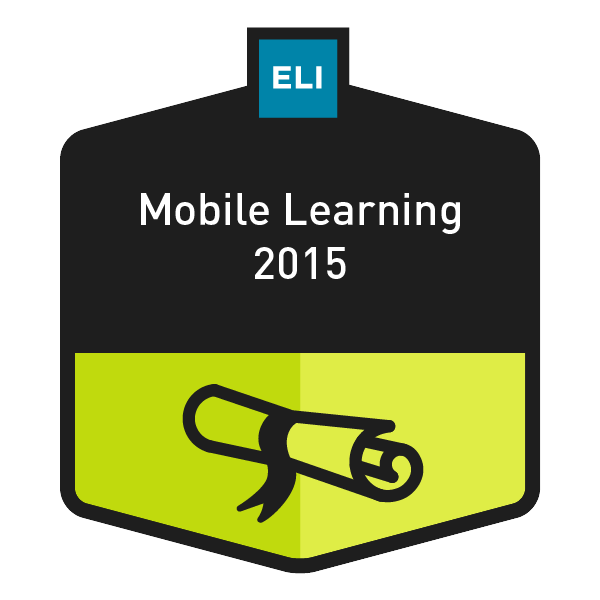Effectively Integrating Handheld and Wearable Technology into Learning Spaces
Handheld devices and wearable technologies continue to offer exciting possibilities for an already connected and mobile culture. Ubiquitous Internet access continues to transform the options and ways we exchange information, conduct our social lives, do business, and make meaning. On campus, smartphones and tablets are as common as backpacks and books while wearable technologies are steadily increasing in adoption among learners of all ages. The mobile experience in higher education has matured from early novelty uses and efficiencies such as taking attendance, polling, and offering apps that stream student services, content consumption, collaboration, access to course management systems and extension of the learning space into the online, blended, and face-to-face learning environment.
The dizzying pace of new technology releases, apps, and the limitless options for use present ongoing challenges and opportunities for higher education. At the same time, institutions are being challenged to offer a high-quality product while simultaneously reducing the cost for the student. Within the next decade, the first generation of students born after the release of the iPhone will enroll in college possessing a mobile skill set unparalleled by previous classes. An effective mobile strategy is an opportunity to attract, engage, teach, and support today's students.
Learning Objectives
During this course, participants will:
- Examine a brief history of mobile learning to establish a theoretical framework for the integration of mobility in higher education
- Develop a mobile learning pedagogy
- Establish a personal mobile learning strategy
NOTE: Participants will be asked to complete assignments in between the course segments that support the learning objectives stated above and will receive feedback and constructive critique from course facilitators on how to improve and shape their work.
Course Facilitator
Scott Hamm is the director of online education at Hardin-Simmons University and former director of mobile learning research, working in the Adams Center for Teaching and Learning at Abilene Christian University. He teaches the Mobile Learning Mastery Series for the Online Learning Consortium and coordinated ACU's Mobile Learning Fellowship program and innovative approaches to learning using mobility. Scott has authored several chapters on mobile learning including a chapter in Handbook for Mobile Learning (Routledge Press 2013) and the lead chapter in Mobile Pedagogy and Perspectives on Teaching and Learning (IGI Global 2013). His research interests include online environments and mentoring. An article pending publication highlights his work studying online mentoring and its effect on course outcomes and spiritual development. Scott did his undergraduate work in education at Penn State and graduate work in religious education at Abilene Christian University. He received a doctorate in educational ministry at the Southwestern Baptist Theological Seminary in 2006 and is working on another PhD in information systems at Nova Southeastern University. His research agenda is evidence-based immobility and emerging pedagogy. Recent publications include Facebook Addiction, Teacher Text, and an article in the Journal of Teaching Theology and Religion on the synthesis of learning in an online course. Scott teaches in the graduate education and higher education programs at ACU, Fresno Pacific University, and Hardin-Simmons University.
Upcoming Events
ELI Event Calendar
Discover a variety of ELI offerings just around the corner: courses, webinars, and more.
EDUCAUSE Event Finder
View events across the association: courses, webinars, conferences and Institute programs.
Contact Us
For general information about this event, including registration, please contact EDUCAUSE Member Services:
- [email protected]
- 303-449-4430
- 303-440-0461 (fax)
